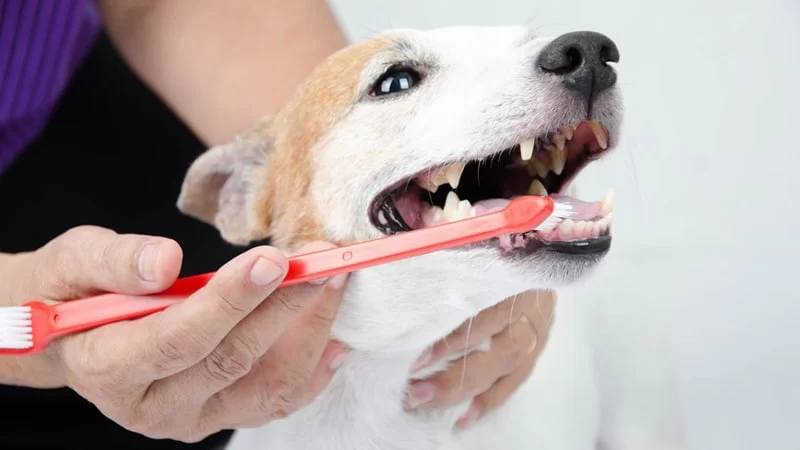Essential Tips for Preventing Pet Dental Disease
As a pet parent, you probably understand the importance of keeping your furry friends healthy and happy. One of the most common health issues pet owners overlook is dental disease. Just like humans, pets can develop dental problems that lead to painful conditions, infections, and other serious health concerns. In my experience, taking a proactive approach to your pet's dental care can make a world of difference. Let me share some top tips for preventing pet dental disease, so your pets can enjoy a long, healthy life.
Why Dental Health Matters for Your Pets
Many pet owners don't realize the critical role dental health plays in the overall well-being of their pets. Pets, especially dogs and cats, are susceptible to dental disease such as gingivitis, tartar buildup, and periodontitis. These conditions are not only painful but can lead to tooth loss and, if left untreated, more severe health issues. Bacteria from the mouth can travel into the bloodstream and affect the kidneys, liver, and heart. That’s why it’s so important to keep an eye on your pet’s dental health.
1. Regular Brushing is Key to Healthy Teeth
Brushing your pet's teeth is one of the best ways to prevent dental disease. While it may sound like a chore, brushing your pet's teeth doesn’t have to be difficult or time-consuming. Start by using a toothbrush designed specifically for pets and a toothpaste that’s safe for them. Don’t use human toothpaste, as it can be harmful to pets. Aim to brush your pet’s teeth at least a few times a week to remove plaque and prevent tartar buildup. It may take a little time to get your pet used to the process, but once they realize it’s part of their routine, they’ll be much more cooperative.
When I first started brushing my dog Max's teeth, he was a bit nervous. But after a few sessions, he started to enjoy it, especially when I used a peanut butter-flavored toothpaste. The key is consistency, and soon enough, brushing your pet’s teeth will become second nature.
2. Provide Dental Chews and Toys
Another great way to promote dental health is by providing dental chews and toys. These items help reduce plaque and tartar while keeping your pet entertained. Dental chews come in various shapes and sizes, making them suitable for different types of pets, from small puppies to large adult dogs. Some dental toys are also designed to help clean hard-to-reach areas, like the back teeth. I’ve noticed a significant improvement in Max’s dental health after I introduced him to dental chews. He loves them, and they help him maintain his teeth between brushings.
3. Regular Veterinary Checkups are Crucial
One of the best ways to prevent dental disease in your pet is by taking them for regular veterinary checkups. A professional cleaning at the vet’s office can remove tartar buildup that’s difficult to reach with a toothbrush. Plus, a vet will be able to detect early signs of dental problems that you might not notice at home, such as gum inflammation or loose teeth. I always make sure to schedule an annual dental checkup for Max. It’s a small investment that can save us from larger, more expensive health issues down the road.
4. Watch for Warning Signs of Dental Disease
As a pet owner, it’s important to be vigilant and watch for signs of dental problems. Bad breath is one of the most obvious signs that your pet may be dealing with dental disease. Other symptoms to look out for include excessive drooling, difficulty eating or chewing, and swollen or bleeding gums. If your pet is showing any of these signs, it’s time to visit your veterinarian. When Max started showing signs of bad breath, I knew it was time for a dental checkup. Luckily, with early intervention, we were able to prevent any serious problems.
5. Diet Plays a Role in Dental Health
What your pet eats can have a big impact on their dental health. Many pet foods are designed to promote oral health by helping to scrape away plaque and tartar as your pet chews. If you’re concerned about your pet’s dental health, consider choosing a high-quality pet food that includes dental benefits. Additionally, some veterinary clinics offer special diets and treats that help prevent dental disease. Max’s diet has always been an essential part of his overall health, and I make sure he gets the right nutrition to support his teeth and gums.
6. Consider Professional Dental Cleanings
Even with regular brushing and dental chews, some pets may need professional dental cleanings to maintain optimal oral health. These cleanings are typically done under anesthesia to allow the vet to thoroughly clean below the gum line and address any tartar or plaque buildup that could lead to disease. Professional cleanings are an investment in your pet’s health, but they can be essential for preventing serious dental conditions. I’ve had to have a professional cleaning done for Max a couple of times, and it has made a noticeable difference in his dental health.
7. Prevention is Better Than Treatment
When it comes to dental disease in pets, prevention is always better than treatment. By following these simple tips and being proactive about your pet’s dental care, you can help avoid painful and costly dental procedures down the line. Whether you’re brushing your pet’s teeth regularly, providing dental chews, or scheduling professional cleanings, every little bit counts toward keeping your pet’s mouth healthy and free from disease.
If you ever find yourself unsure about how to care for your pet’s dental health, don’t hesitate to consult your veterinarian. They can provide personalized advice and ensure that your pet’s teeth stay in top condition. At Hidden Brook Veterinary, we’re always here to help guide you on the best practices for keeping your pets healthy, happy, and smiling.












